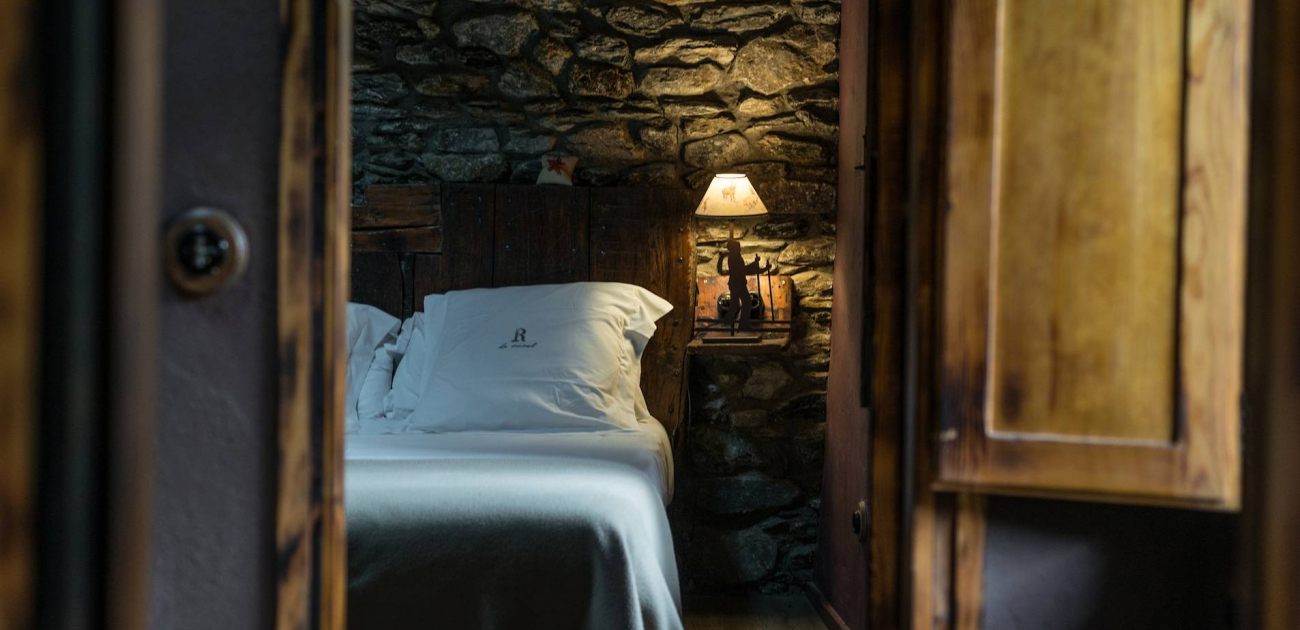Post-Covid Border Opening: Prospects for Real Estate Assets for Tourist Accommodation
It is evidence that the activity of the tourism sector in our country has a very important weight in the Andorran economy. So is the fact that in recent years, the number of tourist accommodation has increased. According to data from the Department of Statistics, in 2015 the total number of hotel and tourism establishments was 973, being 1051 in 2019. Of these establishments, 206 corresponded to hotel establishments and 142 to other types of accommodation. short-lived in 2015, while in 2019 hotel establishments had risen to 208 and other tourist establishments to 167. In terms of the number of workers, let us not forget that this sector employs more than 7,000 workers and that the wage bill of the hotel sector represented more than 10 M Euros in January 2020.
The management of the health crisis carried out by the Andorran public sector has increased the international position of Andorra as a preferred destination for foreign investment. And these investments are often channeled through real estate investments, many of them in the tourism sector. It is a fact that the image shown outside our borders has been decisive. We believe that the tourism sector can emerge stronger when these first months of post-COVID instability settle. In order to carry out these operations, it will be necessary to convey the confidence of being endowed with a solid, clear and seamless regulatory body that ultimately provides legal security to the investor.
In the near future we will be faced with real estate operations that will respond either to the acquisition of tourist real estate assets that will require rehabilitation actions to adapt to new needs, or directly to the acquisition of land and subsequent construction of new establishments. These operations are likely to be the result of the inflow of foreign capital into Andorran tourism companies, including those for the rehabilitation of existing assets.
Much of the real estate market in the Andorran tourism sector is in the hands of family businesses. It will be a challenge to establish alliances with foreign investors to modernize and further position Andorra as an international reference. This challenge will come from the hand of hotel management contracts where the establishment of equity as the prevailing rule in the sector, will be the most common form of consideration for this operation. It will reduce the security of a fixed income, for the sake of better profitability in the participation of the business. We will see that these contracts will become more and more linked to investments in the real estate park, often left in the hands of the owner and will pass into the hands of the tourism manager. Therefore, agility and collaboration will be sought between the different agents involved in the operation of the tourism business: Owner, Business Manager and also public administration.
It is precisely the application of sectoral regulations by public administrations that often becomes one of the most complex elements. The tourist accommodation sector suffers from excessive regulation, contained in different regulations, both general and communal. Indeed, according to the Tourist Accommodation Act of 2017, we understand as tourist accommodation hotel real estate assets, tourist apartments, campsites, rural accommodation or Tourist Housing (HUT), all of them, real estate assets urbanistically qualified as a tourist use, with the exception of the latter which in certain cases may be qualified as a residential use.
Unfortunately, this excessive regulation is no exception when compared to the countries around us. The administrations have found some complexity in regulating the economic reality that has prevailed in recent years, with a predominance of tourist activity and social demands that demand more residential roof, especially for rent. It is clear that the potential ceiling is finite and administrations need to balance uses. Therefore, first of all, before regulating, you need to be very clear about where you want to go and which path you will follow. In other words, what is the model of land use to which it is aspired and, therefore, to clearly define the urban policy according to this objective.
And in this first objective we already find the fact that it corresponds to the Commons the definition of the urbanistic policy of the parish within the frame of the general of the State, and the management, fixation and application of the general and partial plans of urbanization , the conditions of buildability and habitability. Therefore, it will be the administration closest to the citizen, responsible for establishing the urban model, and therefore tourism, for its territory. This definition of the territory model must be done under guidelines of coordination of the general administration.
In this post-COVID stage where safe and low-density tourist destinations will be sought, Andorra could be well positioned. It seems reasonable that the new demand should be oriented towards the search for tourist accommodation that covers the new needs and one of these needs will undoubtedly be residential-tourist use.
And it is likely that the urban future will lead us to a system where residential and tourist use coexist more peacefully than at present. Andorra has already made progress in regulating, albeit temporarily, the mixed formula for hotel and residential use in the same building. Thus, the second transitional provision of Law 3/2019, of 17 January, on urgent measures relating to the lease of housing, established that rehabilitation or refurbishment licenses could be granted on a temporary basis in exceptional conditions. hotel of the tourist accommodation of the group aparthotels and of the modality of tourist apartments, as long as the houses in regime of residential rent did not represent more than 50% of the total of the surface destined to accommodation units. If this percentage is exceeded, the building should be used in its entirety for residential rental housing. Aparthotels and tourist apartments that comply with this transitional provision were not subject to Articles 6 and 13 of Law 16/2017, of 13 July, General of Tourist Accommodation with regard to the obligation that the buildings must be made up entirely of studios or apartments intended for tourist activity.
On the other hand, another problem that can become an opportunity in the sector is the completion of buildings in progress that for whatever reason were not completed. And this is where the recently amended Construction Regulations continue to come into play, which allows for a temporary opportunity regulated in the Third Transitional Provision which provides for the temporary granting of rehabilitation or building renovation licenses under exceptional conditions if presented before the corresponding common within eighteen (18) months from May 20, 2020. This would be a solution for partially constructed buildings with expired licenses that to date had difficult solution. A good mechanism to reduce unused real estate assets today due to lack of completion.
Therefore, the sector of tourist real estate assets may present interesting opportunities in the near future. Partially built assets, refurbishment of existing buildings or new developments. The owners of these assets will continue to look for ways to get the best return on their assets, tourism asset managers will seek to minimize the risk and impact of unexpected job losses such as those caused by the crisis we are experiencing and well surely the administration will have to continue advancing in the simplification of the urbanistic procedures and in general of all the administrative procedures, fact that would have to stimulate the economic perspectives of the sector.
Do you want more information?
 Elena Redondo
Elena RedondoElena Redondo is a Partner at Cases & Lacambra in Andorra. Her practice is focused on Public Law, Real Estate, Construction and Environmental Law and she has participated in the drafting of regulatory projects in such areas.
